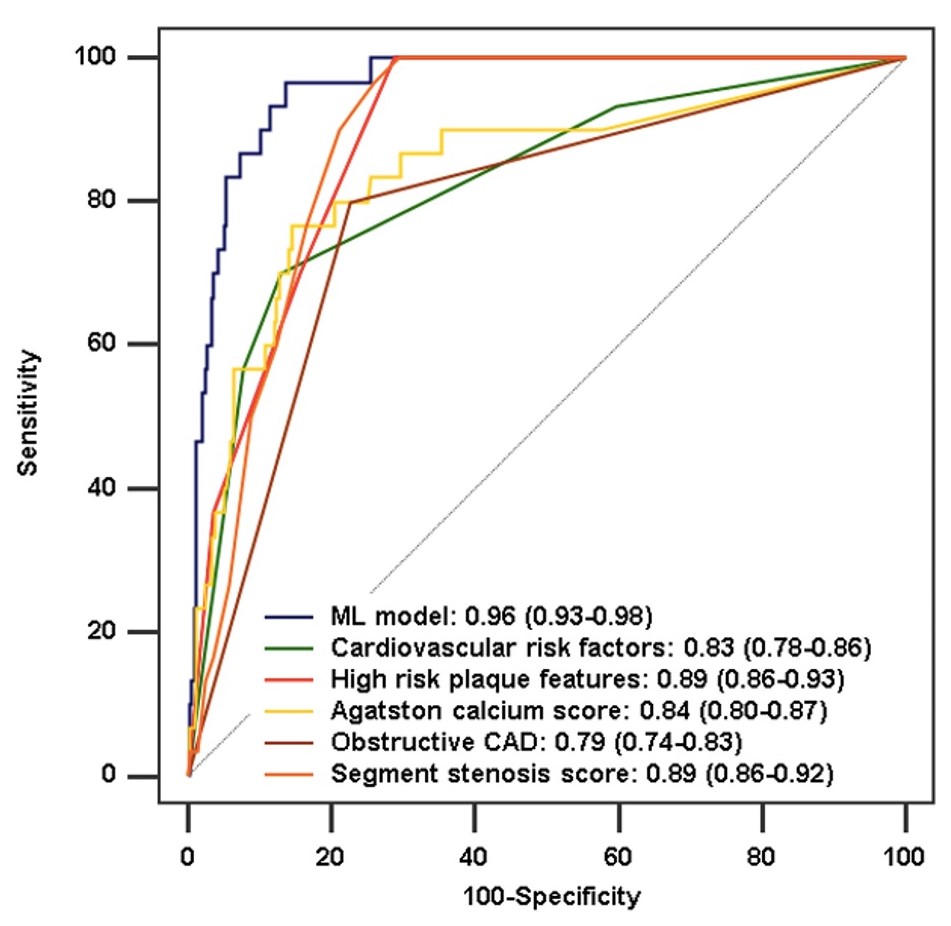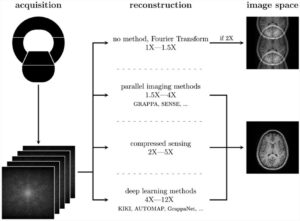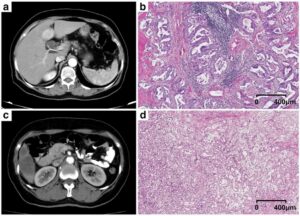In recent years, artificial intelligence (AI) and, in particular, the application of machine learning (ML) algorithms, have become a new cornerstone in cardiovascular imaging with improved decision pathways, risk stratification, and outcome prediction in a more objective, reproducible, and rational manner. The integration of ML in daily routine clinical practice may hold potential to improve imaging workflow and to promote better outcome prediction and more effective decision-making in patient management. Moreover, cardiac CT represents a field wherein ML may be particularly useful, such as coronary CT angiography (CCTA), which allows combined anatomical and morphological assessment of coronary artery disease (CAD). Plaque burden and plaque morphology are determinants that have attracted interest for improved diagnostic and prognostic accuracy beyond traditional cardiovascular risk factors and CT-based risk scores.
We assessed the long-term prognostic value of CCTA-derived plaque measures and clinical parameters on major adverse cardiac events (MACE) by using an ML model that is based on a boosted ensemble algorithm (RUSBoost) utilizing decision trees as weak learners with repeated nested cross-validation to train and validate the model. Several cCTA-derived adverse plaque features and conventional CT risk scores together with cardiovascular risk factors were provided to the ML model to predict MACE.
The ML model revealed a significantly higher diagnostic performance for predicting MACE when compared to conventional CT risk scores. Additionally, the ML model outperformed conventional logistic regression analysis in the prediction of adverse events. While showing great results in our patients’ cohort, we believe that the generalizability of our ML model has yet to be investigated in a large-scale trial before this approach is ready for clinical integration. Further refinements of the algorithm and validation in an external patient cohort are required in future steps.
Key points
- A machine learning (ML) model portends high discriminatory power to predict major adverse cardiac events (MACE).
- ML-based risk stratification shows superior diagnostic performance for MACE prediction over coronary CT angiography (cCTA)-derived risk scores or clinical parameters alone.
- A ML model outperforms conventional logistic regression analysis for the prediction of MACE.
Authors: Christian Tesche, Maximilian J. Bauer, Moritz Baquet, Benedikt Hedels, Florian Straube, Stefan Hartl, Hunter N. Gray, David Jochheim, Theresia Aschauer, Sebastian Rogowski, U. Joseph Schoepf, Steffen Massberg, Ellen Hoffmann & Ullrich Ebersberger













